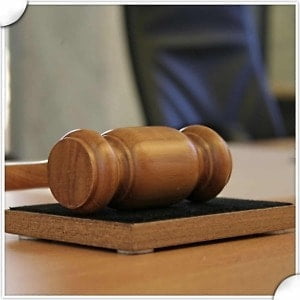A review of 3 top Q&As You MUST Know by ➪ Boca Raton ➪
West Palm Beach Bench Warrant Attorney Josh LeRoy on:
Need help? Use the form below, or read more about West Palm Beach Criminal Attorney Joshua LeRoy, Esq.
Contents
- 1 Failure To Appear, Bench Warrants & Related Charges
- 2 Before hiring a Bench Warrant Attorney, What Should I know about: F.S. S.901.02, S.901.15, S.843.15?
- 3 Charged? Call West Palm Beach Bench Warrant Attorney Josh LeRoy Because Experience Wins. Can You Afford to Lose?
- 3.1 Drop me a note, and I'll give you a call - Josh
- 3.2 West Palm Beach Bench Warrant Attorney Joshua LeRoy, Esq. is dedicated to providing his clients with personalized, honest, and aggressive representation in any areas of criminal law in Boca Raton, Boynton Beach, Delray Beach, Lake Worth, West Palm Beach on up to Jupiter & the surrounding areas of Palm Beach County.
Before hiring a Bench Warrant Attorney, What Should I know about: F.S. S.901.02, S.901.15, S.843.15?
A warrant is a written order, signed by a judge, directing and authorizing police to place someone under arrest. Just like the conduct of citizens, police officers, and even attorneys, the rule of law governs the issuance of warrants by judges.Hence, for an arrest warrant to be lawful, the judge, before signing the document, must confirm that there is probable cause that the accused has committed a crime.
A “bench warrant,” also known as a “capias,” varies slightly in that the warrant is issued directly by the judge, most

commonly when a defendant who has already been arrested and released on bond fails to appear in court at a scheduled hearing.
Because, after appropriate notice, a defendant’s failure to appear for a scheduled hearing is a crime, the judge issuing the bench warrant has direct knowledge of the absent defendant’s failure to appear.
So, the judge can issue the warrant without a separate affidavit from a police officer alleging the person committed a crime.
(By the way, the place where a judge sits at a hearing was initially known as “the bench,” hence the name “bench warrant.”)
What defense would a Bench Warrant Attorney use for failing to appear in court?
Your failure to appear in court is not a crime if you did not receive proper notice of the date and time of the hearing or if some unanticipated event intervened, preventing you from appearing, such as (1) the mechanical breakdown of your car, (2) a promised offer to timely drive you to court was not fulfilled, or (3) you were in the hospital.
When such things happen, the proper and relatively simple course of action is for your lawyer to file a motion to withdraw the warrant and then appear in court to explain the extenuating circumstances to the judge. Under such and similar cases, the law requires the judge to cancel the bench warrant.
What are the penalties for a defendant’s failure to appear in court for a scheduled hearing?
First, you should know that failing to appear in court is rarely prosecuted. Instead, the State and the judge usually prefer to resolve the matter so that someone can address the underlying case.
But suppose a defendant posted a bond for release in a misdemeanor case. In that case, Florida law classifies his willful failure to appear in court for a scheduled hearing as a 1st-degree misdemeanor, subjecting the accused to a range of penalties from a term of probation up to one year in the county jail.
Suppose a defendant posted a bond for release in a felony case. In that case, Florida law classifies his willful failure to appear in court for a scheduled hearing as a 3rd-degree felony, subjecting the accused to a range of penalties from a term of probation up to 5 years in prison.
Charged? Call West Palm Beach Bench Warrant Attorney Josh LeRoy Because Experience Wins. Can You Afford to Lose?
If you, or someone you know, have been charged, call Bench Warrant Attorney Josh LeRoy in West Palm Beach (Palm Beach County from Boca Raton, Boynton Beach, Delray Beach, Lake Worth, Wellington, and up to Jupiter, and Port St. Lucie), or any of the surrounding areas, to schedule a free consultation.
I will help you (1) understand the charges against you, (2) learn what you can expect from the State’s prosecution, and finally, (3) answer the many questions I’m sure you have.
Knowledge is power. You must use it to fight the State’s prosecution of you.
-Joshua LeRoy, Esq.
Looking for details on the law firm? Click here

